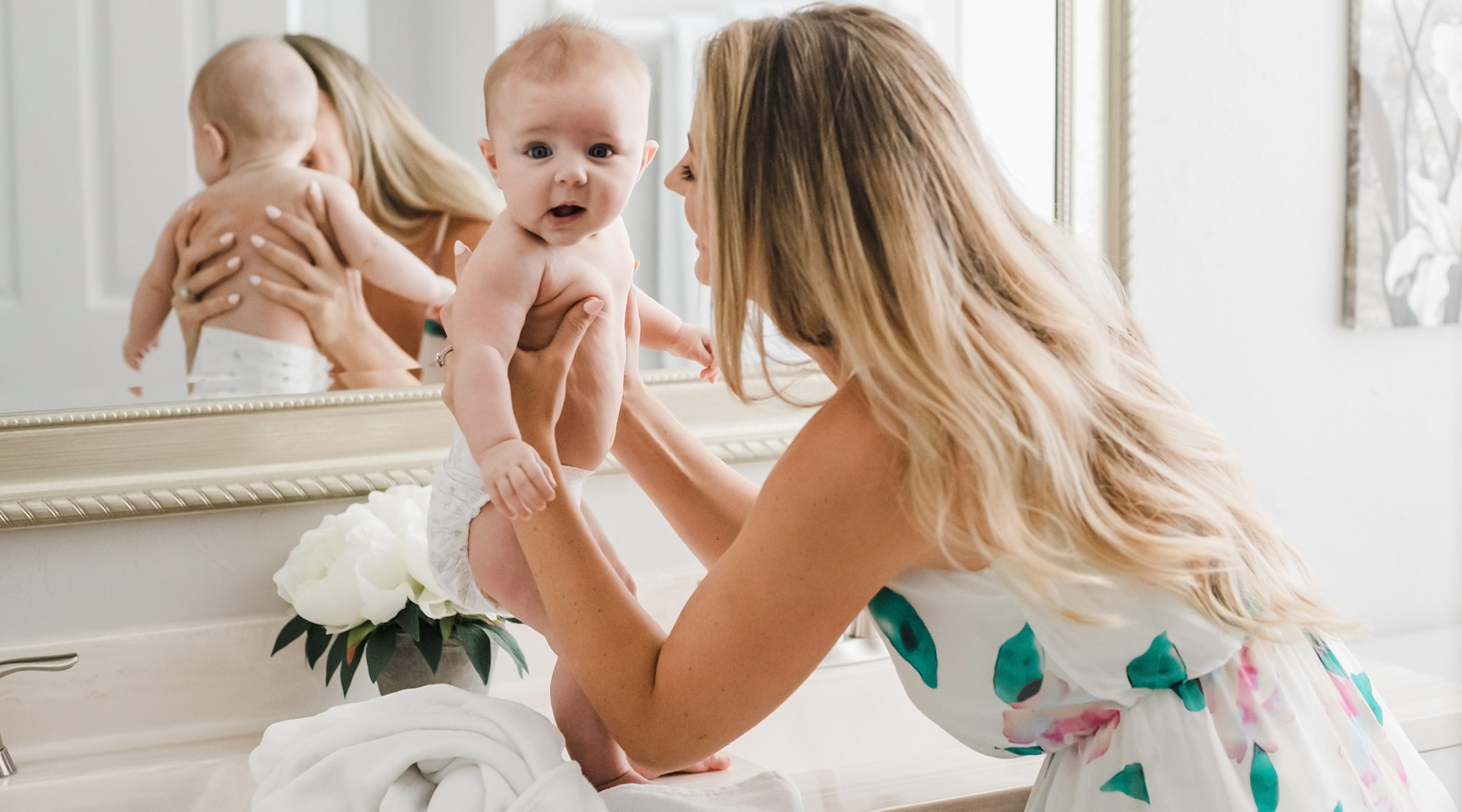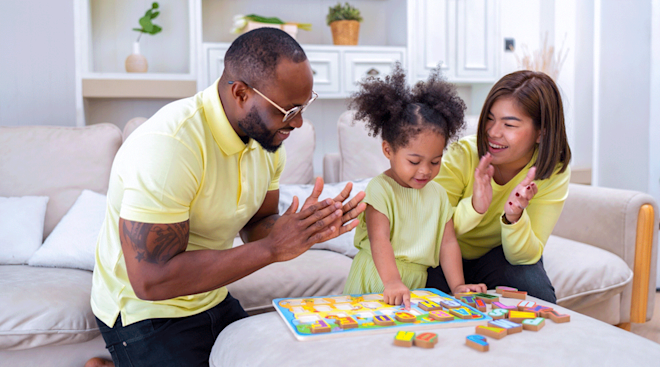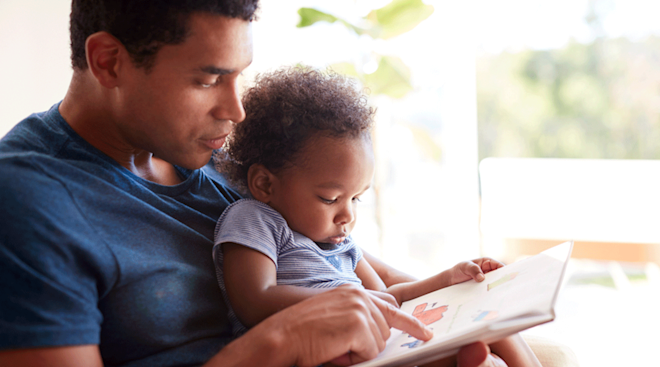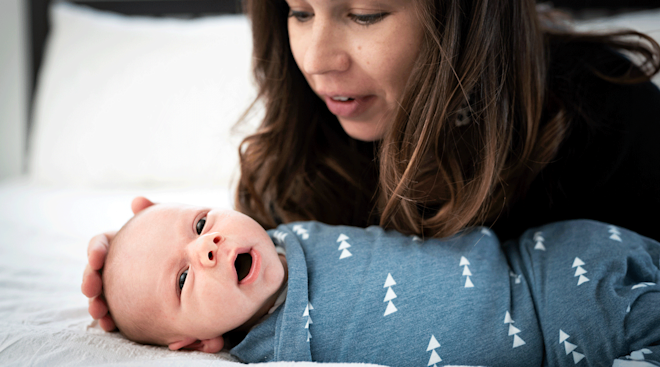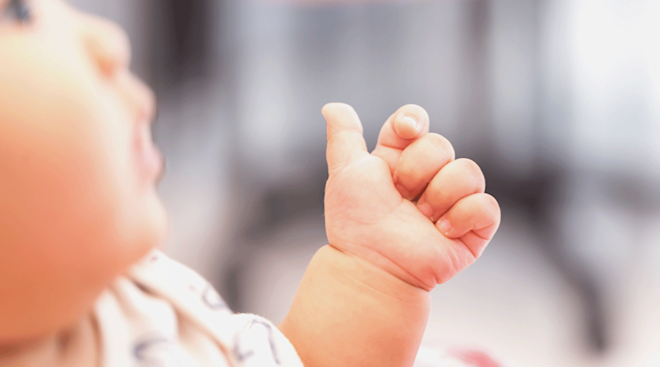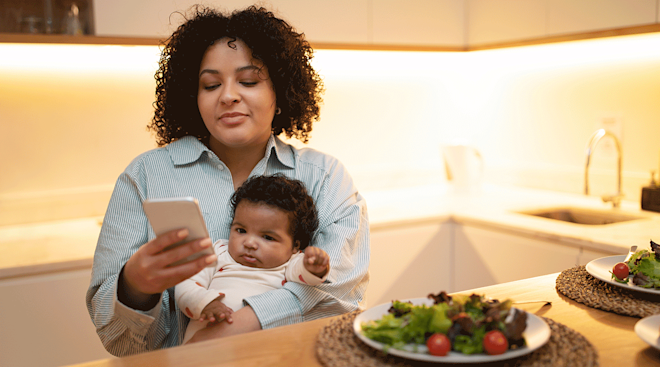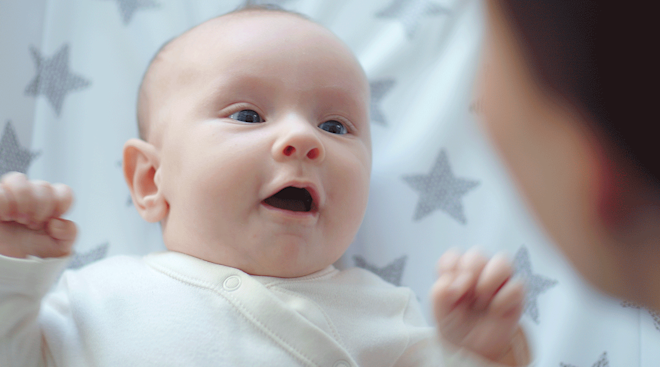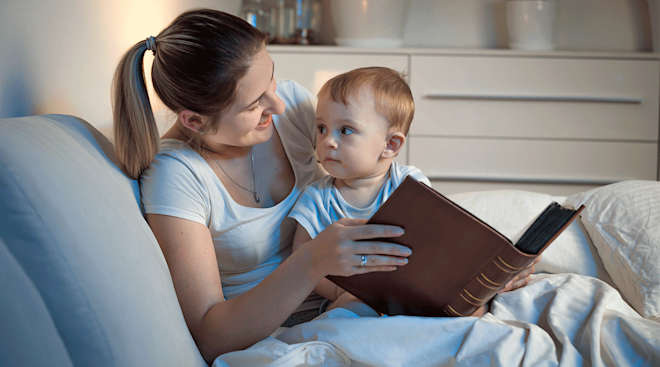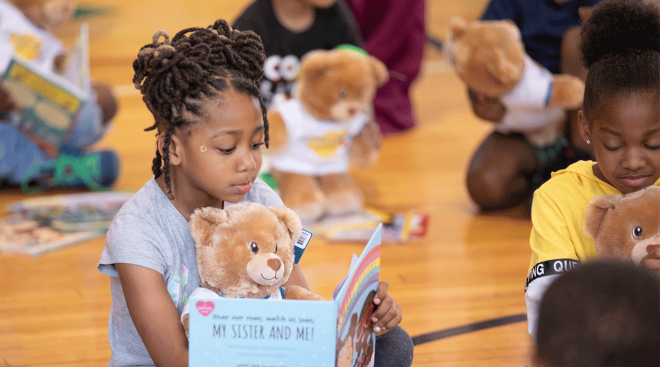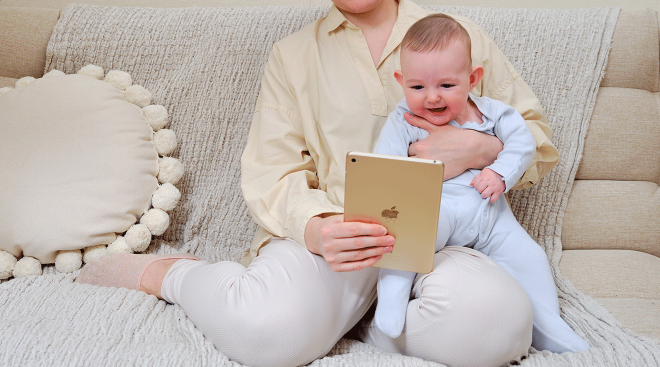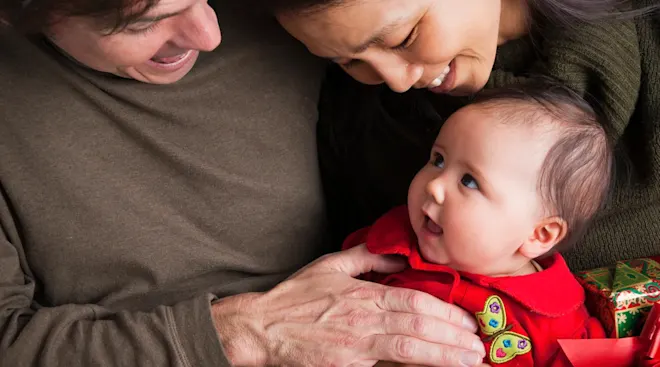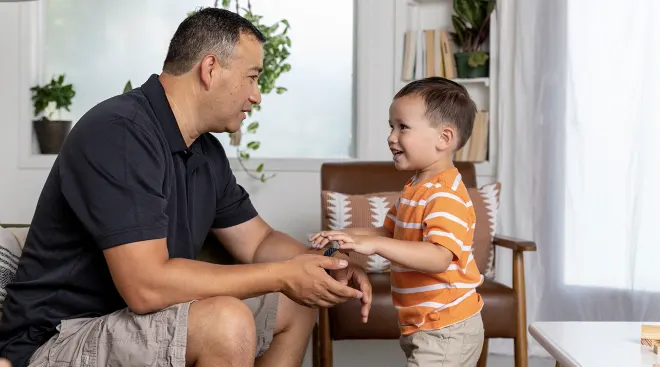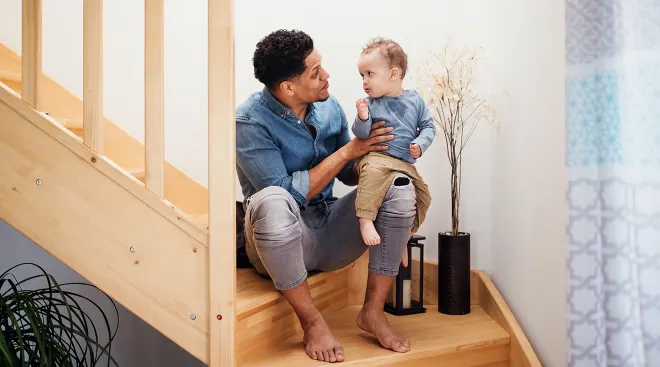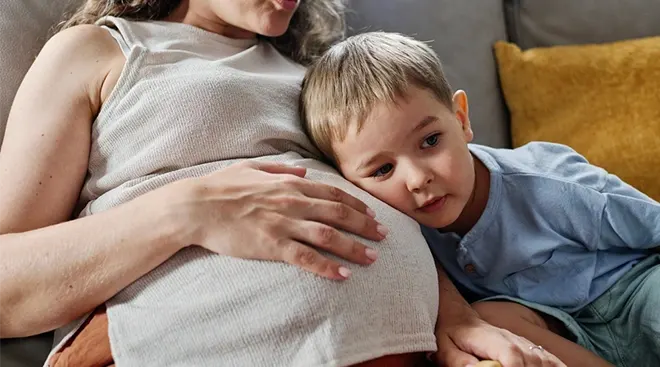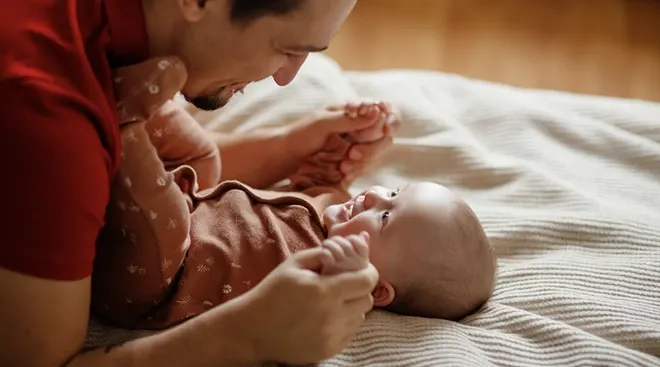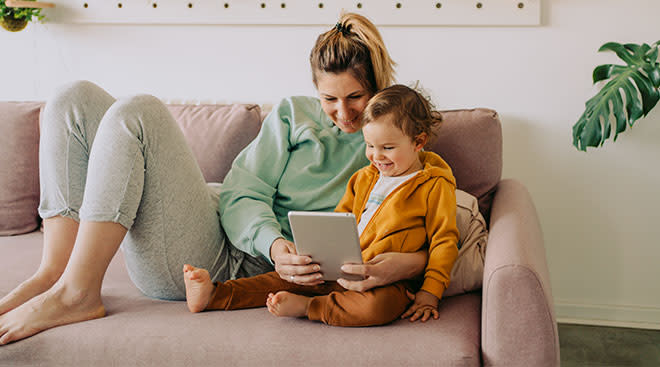Hearing Baby Babble Makes Us Unconsciously Change How We Talk
For years, experts have been telling parents that encouraging your baby’s goo-goo-ga-ga-ing from an early age is essential for establishing the foundation for a strong vocabulary. Now, new research has confirmed that it’s not only babies who are influenced by all that baby talk— parents’ speech is affected too.
When a baby looks over at you all wide-eyed and utters some incomprehensible babble, we instinctively respond in our best baby talk. (Who can resist?) And when we do, according to research from Cornell University’s Behavioral Analysis of Beginning Years Laboratory, we unconsciously modify our speech to include fewer unique words, shorter sentences and more one-word replies. It turns out, all of that helps infants pick up language faster.
Researchers say these “conversations” are actually baby’s way of shaping their own environment to make learning easier for them. In other words, infants aren’t babbling just to babble. Babies are actually “talking” to adults to get them to talk back—in a way that’s more understandable for them—so they can get a better grasp on language.
Steven Elmlinger, lead author of the study that was published in the Journal of Child Language, explains their hypothesis like this: “We know that parents’ speech influences how infants learn––that makes sense––and that infants’ own motivations also change how they learn. But what hasn’t been studied is the link between how infants can change the parents, or just change the learning environment as a whole. That’s what we’re trying to do.”
Elmlinger and his team studied 30 mother-infant pairs engaging in free play over two consecutive days. The babies wore hidden wireless microphones to record their speech and were videotaped. During that time, researchers observed that when a parent adjusted their speech to use shorter, more simplified sentences to respond to their child’s babbling, their infant learned more sounds the following day.
“It’s not meaningless,” Elmlinger said. “Babbling is a social catalyst for babies to get information from the adults around them.”
Interested in learning how to perfect your baby talk? Check out these doctor-recommended guidelines. Your little one will be chatting your ear off before you know it.
Please note: The Bump and the materials and information it contains are not intended to, and do not constitute, medical or other health advice or diagnosis and should not be used as such. You should always consult with a qualified physician or health professional about your specific circumstances.
Navigate forward to interact with the calendar and select a date. Press the question mark key to get the keyboard shortcuts for changing dates.
































